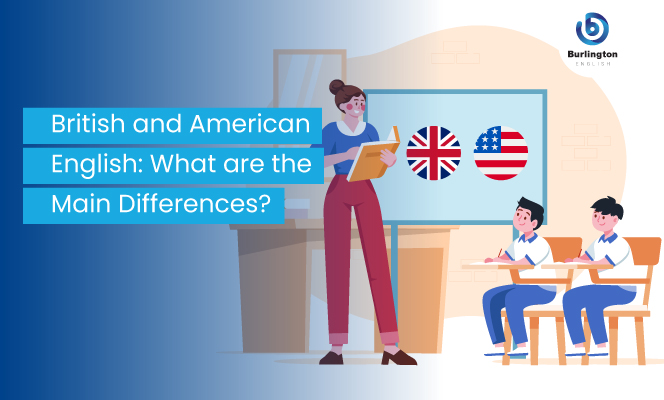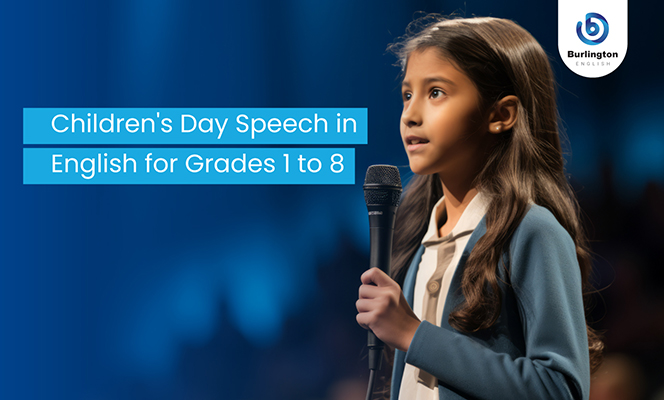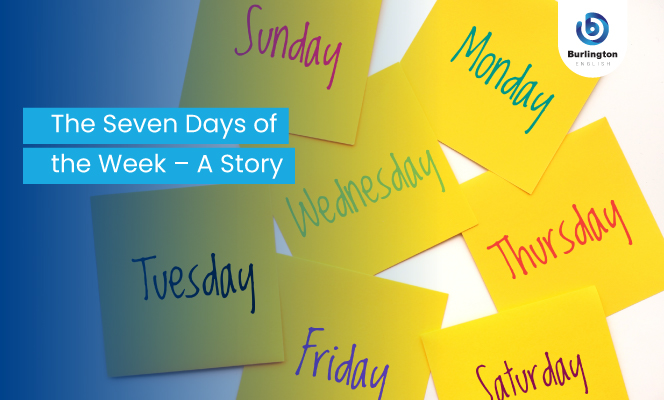When people speak to you in English, can you immediately tell where they are from based on, for instance, their vocabulary or pronunciation? Although people speak in English all over the world, we know the language isn’t spoken exactly the same way everywhere. The two most common and widely-accepted variations of English are British and American English.
As is the case in many countries around the world, American music, TV shows and Hollywood films have a large and appreciative audience in India and as a result, we are quite familiar with American English. At the same time, learners in India are taught British English from a young age and we use British English spelling and vocabulary in our daily and professional lives.
Although you can communicate – whether in speech or writing – in either British or American English and be understood by English speakers everywhere equally well, it is very useful to be aware of the differences between the two. Let us go over some of these differences in this post.
Different Spellings for the Same Words
One of the main differences between American and British English is the different spellings of the same words.
American: –ense
British: –ence
Words end in in –ense in American English and in –ence in British English.
| American | British |
| Defense | defence |
| Offense | offence |
| License | Licence |
American: single ‘l’
British: double ‘ll’
In British English, words that have a vowel before the letter L double the L when adding–ed or –ing to the end. American English retains the single L, in most cases.
| American | British |
| canceled | Cancelled |
| Traveling | travelling |
American: -er
British: -re
This is a tricky one that often confuses us every time we spell these words. Words end in –er in American English and in –re in British English.
| American | British |
| theater | theatre |
| Center | centre |
| Fiber | Fibre |
American: -or
British: -our
Here’s one of the most well-known differences between American and British spellings: the use of -our in British spellings and –or in American ones of the same word.
| American | British |
| Color | colour |
| Behavior | behaviour |
| Favorite | Favourite |
American: -ize
British: -ise
Although there are some exceptions, verbs that end in –ise or –yse in British English change to –ize or –yze in American English.
| American | British |
| Organize | organise |
| Familiarize | Familiarize |
| Apologize | Apologise |
Different Words for the Same Things
There are many words in British and American English that appear completely different but refer to the same thing.
Here are a few:
| American | British |
| soccer | football |
| pants | trousers |
| cookies | biscuits |
| movie theater | cinema |
| movie Drugstore | chemist |
| store | shop |
| Truck | lorry |
| College | university |
Same Words with Different Usage
Some words, despite retaining the same spelling, are used differently by speakers of British and American English.
Quite
In American English, quite (good) implies very (good) but in the British English, it means fairly (good), not very.
Example:
American: I am quite tired now. I could sleep for days.
British: I’m quite certain her flight has landed, but you could call the airline to make sure.
Shall
Used more commonly in the UK, shall is considered formal in the US where the use of will is preferred.
Example:
American: I will finish teaching this class in ten minutes.
British: I shall finish teaching this class in ten minutes.
Needn’t and Shan’t
The British English use of needn’t and shan’t is practically non-existent in the US, where don’t need and won’t are used more frequently.
American: You don’t need to worry about this problem anymore.
British: You needn’t worry about this problem anymore.
American: I won’t be long.
British: I shan’t be long.
Use of Prepositions
If you listen carefully while watching TV shows or the news on British or American channels, you’ll notice slight differences in the way prepositions are used.
American: on the weekend
British: at the weekend
Example:
What did you do on the weekend?
What did you do at the weekend?
American: in college
British: at university
Example:
She majored in Physics in college.
She studied Physics at university.
American: different than
British: different from
Example:
This is different than what I expected
This is different from what I expected
Pronunciation
The clearest difference between General American (GA) and General British (GB) pronunciation is the omission of r in the latter. The r is only pronounced in GB if it is at the beginning of a word or if there is a vowel after it. In GA, the r is always pronounced.
For example, the r in the words park, sort, horse and further would be pronounced in GA and not pronounced in GB.
There are also differences in vowel and consonant sounds that you will learn to distinguish clearly after listening extensively to English speakers with GA and GB pronunciation.
Accent
An accent refers to a distinctive way of pronouncing the sounds in a language that is especially associated with a particular country, area or social class. Speakers of English with British, American and Indian accents all sound very different; and what’s more, these accents can vary greatly from region to region.
Don’t stress about which is the better accent to cultivate while you’re learning English. A British accent is no better or worse than an American accent – they’re just different! And as the world becomes more and more connected, many people regard British and American vocabulary and usage as fairly interchangeable.
Remember, accent is not a marker of fluency and not something to be self-conscious about – the main thing is that your spoken English is easy to understand. English proficiency tests such as IELTS don’t penalize test-takers for having an accent; rather, the focus is on intonation and rhythm, intelligibility, and your ability to produce a wide range of grammar and vocabulary with ease.
Now that you know the main differences between American and British English, let Burlington English help you improve your spoken English skills with an online English speaking class. Our expert tutors will help you to make rapid progress, while the patented AI technology in our Speech Trainer® will help you to perfect your pronunciation. Join us to become a more fluent, confident speaker of English – be it the British or the American version!







